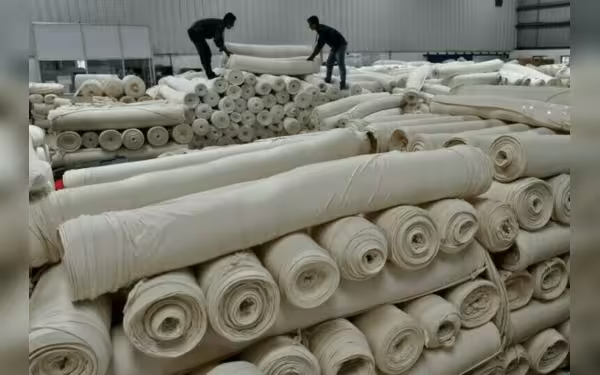Sunday, July 7, 2024 01:07 PM
PHMA Opposes Proposed Tax Regime Changes
- Industry leaders express strong opposition to tax regime amendments
- Concerns raised over potential challenges and increased scrutiny from FBR
- Textile sector emphasizes need for transparent communication with government
 Image Credits: brecorder
Image Credits: brecorderIndustry leaders in Pakistan's textile sector voice opposition to proposed tax regime changes, citing concerns over increased scrutiny and challenges. They emphasize the importance of transparent communication with the government for economic stability.
The value-added textile sector in Pakistan is currently facing uncertainty and apprehension due to the proposed amendments in the Final Tax Regime (FTR) and Normal Tax Regime (NTR). Industry leaders have expressed strong opposition to these changes, citing potential challenges and increased scrutiny from the Federal Board of Revenue (FBR) towards exporters.
Chaudhary Salamat Ali, the Group Leader of the Pakistan Hosiery Manufacturers & Exporters Association (PHMA), voiced concerns during a recent press conference. He highlighted the government's plan to convert the 1% final income tax into a minimum tax regime, which would necessitate exporters to provide detailed documentation of their income and expenditures, potentially adding complexities under the NTR.
Additionally, industry representatives criticized the marginal reduction in the markup rate, stressing the importance of lowering it to single digits to support profitable business operations. Dr. Khurram Tariq, President of the Faisalabad Chamber of Commerce & Industry (FCCI), expressed disappointment over the exclusion of business community recommendations in the budget, indicating a perceived anti-business stance by the government. He also raised concerns about prominent businessmen considering relocation to Dubai due to unfavorable policy measures, urging the government to prioritize expenditure reduction over imposing additional burdens on current taxpayers.
The lack of consultation with industry stakeholders regarding the budget for the upcoming fiscal year was another point of contention raised by industry leaders. They emphasized the significant role of the value-added textile sector in generating foreign exchange and creating employment opportunities. Rana Altaf, a former Senior Vice Chairman of PHMA, criticized the government's strategy of overburdening existing taxpayers instead of broadening the tax base, highlighting the failure to expand the tax net effectively.
The concerns raised by the textile industry regarding the proposed tax regime changes underscore the need for transparent communication and collaboration between the government and key stakeholders. Addressing these issues promptly and considering the industry's recommendations could help foster a more conducive environment for business growth and economic stability in Pakistan.













